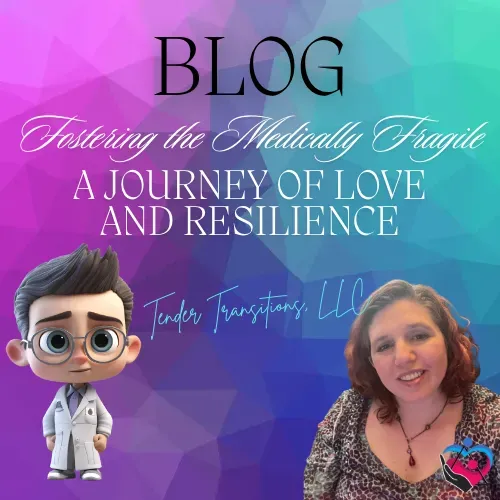FAQs Asked About Foster Care: What You Need to Know
Foster care is a vital and complex system designed to provide temporary care and stability for children who are unable to remain in their biological homes due to various circumstances. As prospective foster parents or individuals interested in the foster care system, you may have many questions about how it works, what it entails, and how it can impact both children and families. This blog post addresses some of the most frequently asked questions about foster care to help you understand this important aspect of child welfare.
1. What is Foster Care?
Foster care is a temporary arrangement where children are placed in the care of individuals or families other than their biological parents. This placement is typically made when a child’s safety or well-being is at risk in their current home environment. The goal of foster care is to provide a stable and nurturing environment until the child can be safely reunited with their family or placed in a permanent adoptive home.
2. How Does the Foster Care System Work?
The foster care system is managed by state or local child welfare agencies, which are responsible for overseeing the placement and care of children in foster homes. When a child is removed from their biological home, a caseworker assesses their needs and determines the best type of placement. Foster parents are then selected based on their ability to meet the child’s needs. The system involves regular monitoring and evaluations to ensure the child’s well-being and progress.
3. What Are the Requirements to Become a Foster Parent?
To become a foster parent, you must meet certain requirements set by your state or local child welfare agency. Common requirements include:
Background Checks:
All potential foster parents must undergo criminal background checks and child abuse clearances to ensure they are suitable to care for children.
Home Study:
A comprehensive home study is conducted to evaluate your home environment, family dynamics, and readiness for fostering. This includes interviews, home inspections, and assessments of your parenting skills.
Training:
Prospective foster parents are required to complete pre-service training that covers various aspects of foster care, including child development, trauma-informed care, and parenting strategies.
4. How Long Do Children Stay in Foster Care?
The length of time a child remains in foster care can vary widely depending on individual circumstances. Some children may return to their biological families within a few months, while others may remain in foster care for years, particularly if reunification is not feasible or if the child’s situation requires a long-term placement. The primary goal is to find a permanent solution that best serves the child’s needs, whether that involves reunification with their family, adoption, or another permanent placement.
5. Can Foster Parents Adopt a Child?
Yes, foster parents can adopt a child if they are interested and if the child’s permanency plan supports adoption. In cases where reunification with the biological family is not possible or deemed in the child’s best interest, adoption may become the primary goal. Foster parents who wish to adopt must meet additional requirements and undergo a separate adoption process. It’s important to discuss your interest in adoption with your caseworker early in the process to ensure that all necessary steps are taken.
6. What Support is Available for Foster Parents?
Foster parents have access to various forms of support to help them manage the demands of caregiving. This support can include:
Training and Resources:
Ongoing training and educational resources are available to help foster parents build skills and knowledge related to childcare and trauma-informed practices.
Respite Care:
Respite care provides temporary relief for foster parents, allowing them to take a break while another qualified caregiver looks after the child.
Support Groups:
Many communities offer support groups where foster parents can connect with others in similar situations, share experiences, and receive emotional support.
Financial Assistance:
Foster parents receive financial support to cover the child’s basic needs, such as food, clothing, and medical care. This support helps offset the costs associated with fostering.
7. What Challenges Do Foster Parents Face?
Foster parents may encounter many various challenges. They may include:
Emotional Strain:
Caring for a child who has experienced trauma or instability can be emotionally demanding. Foster parents may need to manage complex behavioral issues and provide consistent support during difficult times.
Family Dynamics:
Introducing a foster child into your home can affect family dynamics, requiring adjustments and communication to ensure that all family members are on board and supportive.
Navigating the System:
The foster care system involves multiple agencies, caseworkers, and legal processes, which can be complex and time-consuming. Foster parents need to be prepared to advocate for their child and navigate these systems effectively.
8. How Can I Prepare for Foster Parenting?
Preparation is key to successful foster parenting. Consider these following steps:
Research:
Educate yourself about the foster care system, the needs of foster children, and the responsibilities of being a foster parent.
Connect with Others:
Reach out to current or former foster parents to gain insights and advice from those with firsthand experience.
Prepare Your Home:
Ensure that your home meets safety requirements and is equipped to accommodate a child’s needs.
Build a Support Network:
Establish a network of support, including friends, family, and professionals, to help you manage the challenges of fostering.
Conclusion
Foster care is a complex and rewarding journey that involves significant commitment and understanding. By addressing these frequently asked questions, we hope to provide clarity and support for those considering foster parenting or looking to learn more about the foster care system. Becoming a foster parent is a profound way to make a difference in a child’s life, and being well-informed about the process and its demands is essential for providing the best possible care.

